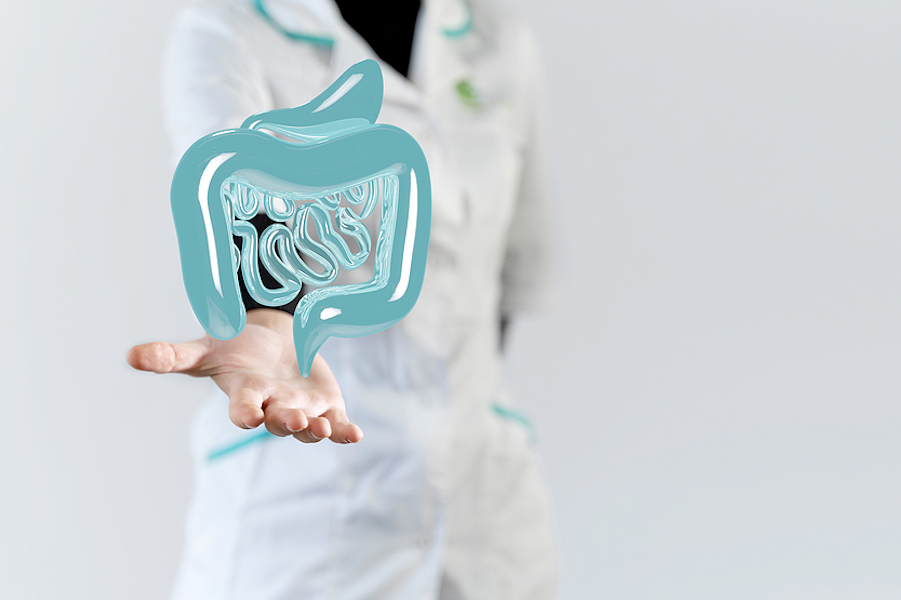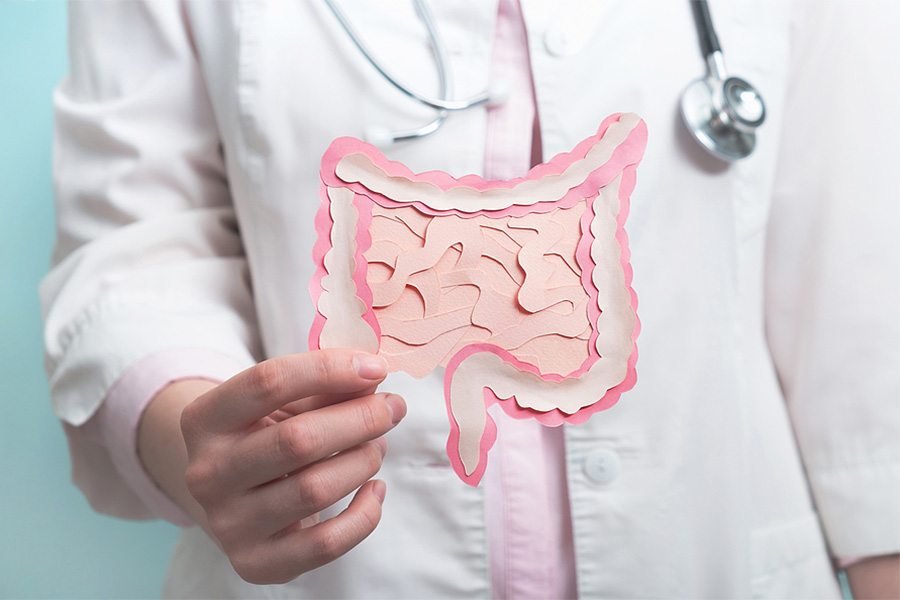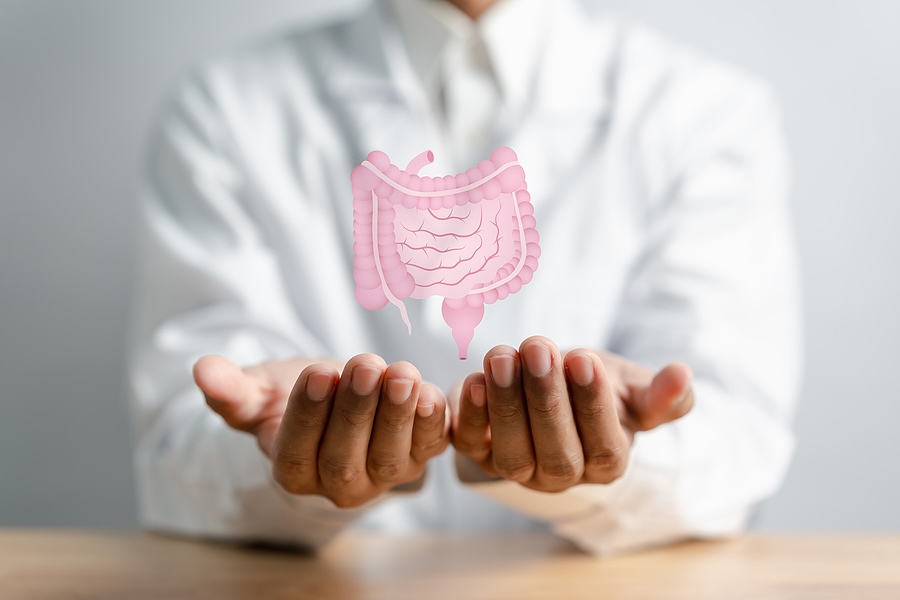Updated: Aug. 25th, 2024
- Millions of people suffer with digestive issues – are you one of them?
- Digestive health is directly connected to overall wellness.
- Do you know the unusual signs of GI dysfunction?
- GI health impacts immunity, sustenance, and emotional health – here’s how.
- What happens if you aren’t getting rid of waste?
- Try these practical suggestions for improving your digestive health
As a functional medicine practitioner, I look at the root cause of issues. And one of the most important things I know after several decades in practice is that nothing contributes more to your overall health than having a healthy digestive system. Even when you’re making the healthiest food choices possible, if your digestive system can’t break down and absorb the nutrients in your food your body can’t get what it needs to keep you thriving.
When Mary came to me disappointed with conventional medicine’s approach to wellness, I asked her about her GI (gastrointestinal) health. She said she’d never really thought about it — at all — until she woke up after gallbladder surgery! But it hasn’t always been this way. For centuries, “How’s your digestion?” was the first question doctors asked. Wise practitioners have always known that a healthy GI system is the foundation for wellness. That got lost somewhere along the way, but in the past several years, we’ve been talking about it again. That’s great news! Progressive medical professionals are seeing proof that a diverse array of symptoms, illnesses, and disorders can be traced directly to digestive dysfunction, even when they seem unconnected to the gut.
If you have digestive problems, you’re not alone
At least 70 million people in the United States report experiencing digestive disorders. What many more don’t know is that seemingly unrelated symptoms may also be tied to trouble in their GI tracts.
Women with digestive problems are often so accustomed to bloating, gas, and other stomach issues that they don’t realize how much better they could feel. Over the years, they’ve learned to live with the discomfort. They even come to believe that it’s normal, but nothing could be further from the truth. Left unchecked too long, functional digestive problems can lead to chronic illnesses that are likely to impair your health even further.
So how do you know what to look for? Here are some surprising signs and symptoms of digestive dysfunction:
- Congestion
- Sinusitis
- Anxiety
- Depression
- Fuzzy thinking
- Loss of bone density
- Acne
- Dermatitis
- Migraine and other headaches
- Joint inflammation
- Arthritis (all types)
- Hypertension (high blood pressure
Many of my patients miss the connection between the food they eat (and it’s impact on the GI system) and how they are feeling, both physically and emotionally. Anything that impacts your GI function is worth taking a close look at, because the truth is, there is a clear connection; good digestion promotes optimal health — both physical and emotional.
Digestive Health Supports Overall Wellness
There are three main avenues through which a healthy GI tract helps establish long-term physical health in women: immunity, sustenance, and emotional health.
Immunity
Your gut hosts most of your immune system activity. A large part of the inflammatory immune response originates in your digestive system, in direct response to what you eat. Exposure to xenobiotics, foreign substances not typically found in your body that get in through your gut, also has a connection to immune function – and how well your body can fight off these invaders.
Sustenance
Your GI system breaks food down into the raw materials and energy your body needs. If your system has trouble with nutrient breakdown or absorption, you may experience unpleasant symptoms no matter how healthy your food choices are. And difficulty with absorption of nutrients can be indicative of bigger health problems.
Emotional Health
A growing body of research has shown how closely your emotions are connected to your GI system, thanks to the enteric nervous system (ENS). Believe it or not, this amazing, and odd ENS helps regulate digestive activity on its own – not connected with your brain. But that doesn’t mean they two aren’t connected – information is always being passed back and forth between the brain and the ENS. I’m sure you’ve experienced a “nervous stomach” at times, or even felt great joy in your stomach first. This connection between your mind and your body is critical to both recovery and maintenance of physical health.
This three-pronged connection between sustenance, immunity and emotional health is the foundation of support for your overall well-being needs. Let’s take a closer look at each.
A lifelong partnership: the close connection between your immune system and your GI tract
Your GI tract is a vast and complex system. It’s 20 to 30 feet long, and every bit is lined with a protective mucosal barrier that recognizes and manages any food-based antigens, pathogens, and toxins that you ingest. If something goes wrong with that barrier, hostile intruders can start to flourish; this is called dysbiosis. An effective way to aid digestion and preserve immunity is to be sure you have enough of the “good” microflora to be sure that these invaders don’t take over.
From birth to death your immune system communicates with microbes, discerning which organisms are beneficial flora, and which are pathogens, which means they cause disease. Good bacteria helps hold the overactive immune responses that can lead to allergic reactions at bay. So many things affect the flora in your stomach: the food you consume, it’s pH balance glycemic load, essential fatty acid content, and fiber, as well as frequent use of antibiotics. Your gut flora is established by age two, so if you were given antibiotics often as a young child, you may end up low in beneficial flora early on, without even knowing it.
When the mucosal lining in your stomach is too easily penetrated, pathogens and undigested food particles can move into your bloodstream more often, resulting in a condition called leaky gut. In functional medicine, practitioners believe leaky gut and dysbiosis are at the root of a wide array of symptoms and potentially serious stomach concerns.
Gut-associated lymphoid tissue (GALT) is a component of the lymphatic system that regulates a large part of the immune system’s functioning. GALT, the largest lymphoid organ in the body, gathers unknown particles together to help immune cells identify organisms and substances that cause harm to the body.
An inflammatory response is normal, and natural, when your immune system is under attack. But if there’s a constant battle raging in the system, you’ll end up with chronic inflammation, which, in the digestive system, can lead to those unpleasant symptoms we talked about earlier. This cycle can lead to food sensitivities, such as to gluten, as part of a “learned” immune response.
For all these reasons, it’s crucial to keep the cells lining your digestive tract in good shape. In functional medicine, there are protocols that can help mend the delicate lining, reestablish balance in the digestive system, reset the immune response, and calm inflammation.
Proper absorption promotes biological functioning
Your age, gender, genetics, health history, current health status, and the environment in which you live all impact which nutrients you require to function – and feel – your best. What we choose to eat is influenced by many factors: culture, availability, sensory input, and habit. Habits, as most of us know, are hard to change, and the longer you do something, the more difficult change becomes. That’s why it’s so hard to give up foods you’ve been eating all your life, even if you know they aren’t healthy. Eliminating food (even favorites) that triggers an ongoing immune response in your body can result in amazing health benefits. But it’s not easy; it’s common to crave foods that your body rejects!
So much happens in the digestive process. Your body must break food down into smaller chemical forms to use it: proteins and other peptides become amino acids; carbohydrates are simplified into monosaccharides; and fats are turned into free fatty acids and monoglycerides. A balanced diet that includes plenty of protein, healthy fats and plant foods will keep your digestive metabolism functioning well, and help regulate the hormones you need to survive (insulin, glucagon, and cortisol), which will give you more energy and a better mood throughout the day.
Your body uses a combination of many things to break down your food: digestive enzymes, stomach acid, bile, and digestive hormones. Each play a unique role in the overall process – and if any of them are lacking, your GI system simply can’t do it’s job! That’s when you may find your body hanging on to toxins, as well as extra pounds. If this is happening to you, bringing your GI system back to good health should be top priority!
When absorption goes wrong
When nutrients aren’t properly absorbed by your body, it’s called malabsorption. There are many conditions that lead to malabsorption: celiac disease/gluten sensitivity, infection, parasites, lactase deficiency, other food sensitivities, and gastric bypass surgery, among others. Nutrients may be poorly absorbed due to a damaged mucosal barrier, lack of enzymes, poor bile or acid circulation, insufficient pancreatic activity, or defective detoxification or ion transport.
Nutrient deficiencies can result when your body doesn’t absorb nutrients well. Many other complications can arise from inadequate absorption of nutrients as well, including anemia, gallstones, kidney stones, osteoporosis, malnutrition, a weakened immune system, and other systemic problems.
Your body will let you know in a number of ways if you aren’t absorbing nutrients correctly. You may experience bloating, cramping, and gas. Stools may be malformed, bulky or fatty, and irregular: both constipation and diarrhea are common symptoms of malabsorption. You may also experience unexplained weight loss and muscle atrophy.
Signs that your body isn’t properly absorbing nutrients shouldn’t be ignored. Talk to your health care practitioner about testing for digestive problems if you are noticing these warning signs.
Why do you get that “gut feeling”?
It’s not unusual to have a physical reaction when you’re feeling nervous or upset. Those “butterflies” in your stomach, or the nausea you feel before public speaking, isn’t all in your head. As I said earlier, your emotions have a deep connection to the enteric nervous system (ENS). This system is quite like your central nervous system (CNS) – there are as many nerve cells in your small intestine as there are in your spinal cord! But we still don’t know a lot about how the ENS functions.
What we do know is that the ENS, ANS (autonomic nervous system) and CNS pass information about gut function and sensory output back and forth constantly, while sending your brain messages. But that communication can get muddled, disrupted by food cravings, hormonal shifts, and immune responses set off by certain foods.
Let’s go back to the feelings you get in your stomach when you’re under stress. Even a healthy person can experience inflammation in their intestines during times of emotional stress. If this stress is ongoing, that inflammation may become chronic. When you choose “comfort foods” when feeling anxious or sad, these can actually fool your system into thinking that a stress response is necessary every time you eat it – even if the upset is gone!
The ENS uses many different types of neurons to regulate gut functioning. It’s responsible for peristalsis and catastalsis, the wave-like contractions that push food through your GI system, along with the circular movements that mix intestinal contents, and initiating digestive enzyme secretion. It’s a sensitive balance that can be easily disturbed by our modern lifestyle. We’re always on the go, which leads to eating far too fast, standing up to eat, gorging on too much food, or forgetting to eat for long stretches of time. This constant disruption of digestion can cause any number of issues, including weight gain, reflux, malabsorption, and insomnia.
What goes in must come out
Patients are sometimes uncomfortable talking about excretion, but getting rid of waste is crucial to healthy GI function – and overall wellness. I try to have my patients make connections between what they eat and what they excrete. That means not only paying attention to what comes out, but also their habits around toileting.
Being too rushed to regularly use the bathroom simply isn’t healthy. Establish a routine, and stick with it. Notice if you’re frequently constipated, or running to the bathroom with diarrhea minutes after eating. Both of these issues are a communication from your ENS – pay attention!
To improve bowel function, eat a balanced diet, and stop eating foods that you know make you feel poorly. Find ways to manage stress. Gradually adding fiber – especially in the form of whole fruits and vegetables, whole grains, beans, nuts, and seeds can also regulate bowel movements.
Good digestive health is a reason for celebration!
Communication in your body isn’t a one-way street. Messages are relayed between body and mind in a continuous flow. This is particularly relevant in regards to your gut function, which is impacted by (and impacts) emotional signals. A great place to begin improving digestive health is to have an honest conversation with your practitioner and ask for support.
Here are a few suggestions for promoting digestive health:
- Create a relaxing, peaceful experience when eating.
- Give yourself plenty of time for adequate elimination.
- Choose meals that are healthy and well-balanced.
- Eat enough – but not too much – lean protein.
- Drink plenty of filtered water, especially early in the day.
- Avoid foods that cause allergic reactions or digestive discomfort.
- Take a high-quality probiotic supplement
- Ask your provider to evaluate your body’s digestive enzyme production and regulation.
It’s always a good time to begin working towards better digestive health. Start small – noticing little differences better can motivate you to take the next steps. Soon, you’ll be well on your way to the optimal gut health you deserve!








